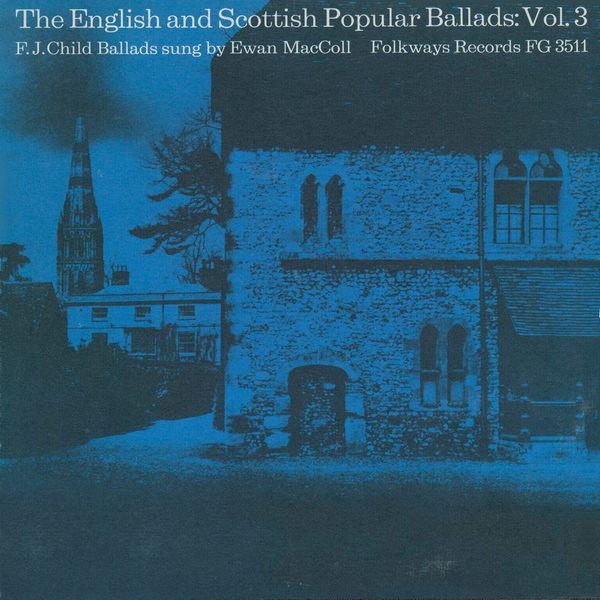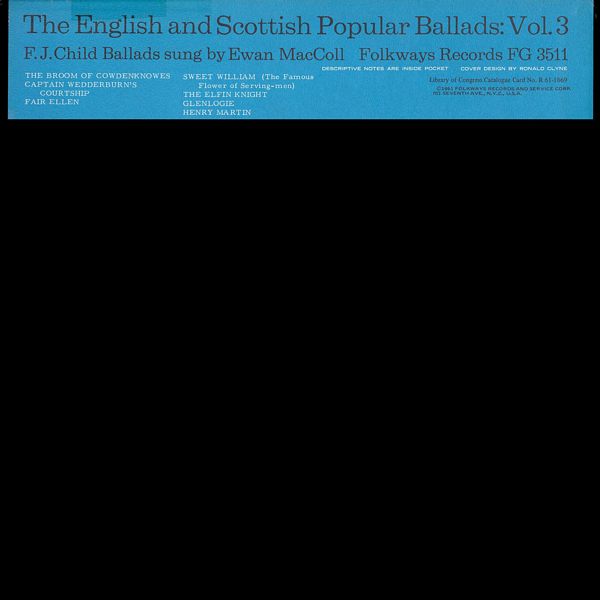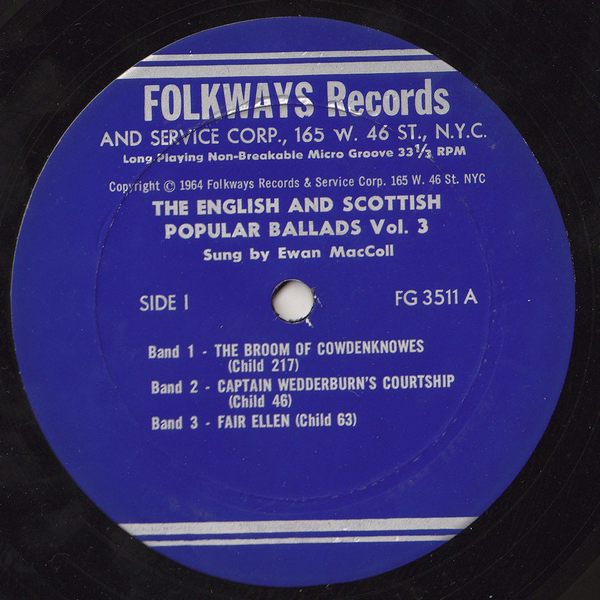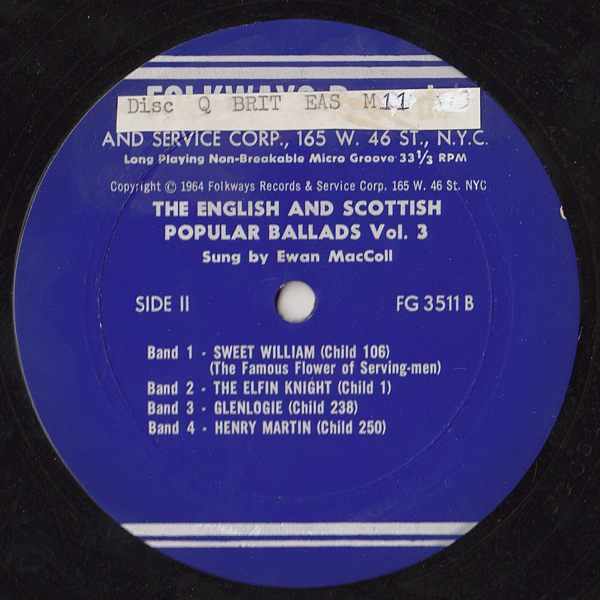

 |


 |
Sleeve Notes
TRADITIONAL BALLADS by EWAN MacCOLL
"Defined in its simplest terms, the ballad is a folksong that tells a story. Whatever may be added to this statement is by way of amplification, to explain and clarify, merely, since the whole truth of the matter is in it. What we have come to call a ballad is always a narrative, is always sung to a rounded melody, and is always learned from the lips of others rather than by reading."
Gerould: The Ballad of Tradition.
Gerould might also have added that the traditional ballad form is one which has proved extremely durable. Not only has it survived social upheaval, revolutions in science and technology, profound changes in public taste and fashion; it has even survived the collectors, anthologists, 'improvers' and concert singers.
This extraordinary capacity for survival appears to have escaped the notice of the most brilliant ballad scholars. Professor Child in a letter to the Danish savant, Svend Gruntvig, wrote: "The sources of British ballads are dried up forever." Thirty five years later Cecil Sharp observed: "The English ballad is moribund, its account is well nigh closed."
Fortunately, these obituary notices have proved premature for while it is true that the TV set has usurped the function of the village storyteller and ballad singer, it is equally true that the occasional intelligent use of TV and radio has introduced the traditional ballad and ballad singer to a large new audience. Furthermore, with the advent of the tape-recorder and the LP disc, the story of the complete ballad form (words and music together) has reached a completely new stage.
The Broom of Cowdenknowes (Child 217) Child printed 15 texts of this ballad, none of which go back beyond the 18th century. The song is considered older than this, however, and an English song published in the reign of James 1st, 'The Lovely Northerne Lasse', has for its air "a pleasant Scotch tune called 'The Broom of Cowdenknowes." An earlier reference is to be found in the fifth edition of Burton's 'Anatomy of Melencholy' 1538: "The very rusticks and hog rubbers … have their ballads, country tunes, O. the broome, the bonny, bonny broome." Learned in a fragmentary form from the singer's father, additional stanzas from Greig and Keith.
Captain Wedderburn's Courtship (Child 46) Riddles occupy an important place in the folklore of the world's peoples and, to this day, the telling and making of riddles is widely practiced by country people, adults as well as children, in the eastern areas of Scotland. The use of riddles as a test for matrimony is a fairly common ballad theme. Learned from Greig and Keith.
Fair Ellen (Child 63) Child refers to this somewhat far-fetched story of devotion and cruelty as "a charming ballad which has, perhaps, no superior in English." The Professor's choice of adjective is, to say the least, curious and one wonders what he would have made of a Hirschfield case-history. Of the eleven texts published by Child, ten are from Scots sources. Learned from Greig and Keith.
Sweet William (106) The Famous Flower of Serving-men. The only version of this ballad published by Child is taken from English ballads sheets of early date. The version given here was recorded by Gavin Greig from George Innes of Portgordon, and appears to be a condensation of the broadsheet version, The ballad is still occasionally found in tradition and, during the last twelve months, MacColl and Seeger have recorded two severely truncated versions, one in East Anglia and the other in Perthshire. The version given here was learned from Greig and Keith.
The Elfin Knight (Child 1)
Glenlogie (Child 238) The earliest extant form of this ballad was sent to Percy by Robert Lambe of Norham; it was called 'Jean of Bethelnie' and is dated 1768. The song is still fairly popular with country singers in N.E. Scotland. Learned from Greig and Keith.
Henry Martin (Child 250) Cecil Sharp observed that "late in the 15th century, a Scottish sea officer, Andrew Barton, having suffered from the Portuguese, obtained letters authorizing his two sons to make reprisals on Portuguese traders. The sons turned on English merchant vessels, levying tolls … " Child was of the opinion that the ballad of Henry Martin must have sprung "from the ashes of Andrew Barton". It appeared in numerous broad side versions and it is to one of these, that published by Catnach of Seven Dials, that the version given here bears the most marked resemblance. This ballad was learned from the singing of Sam Larner, of Winterton, Norfolk.